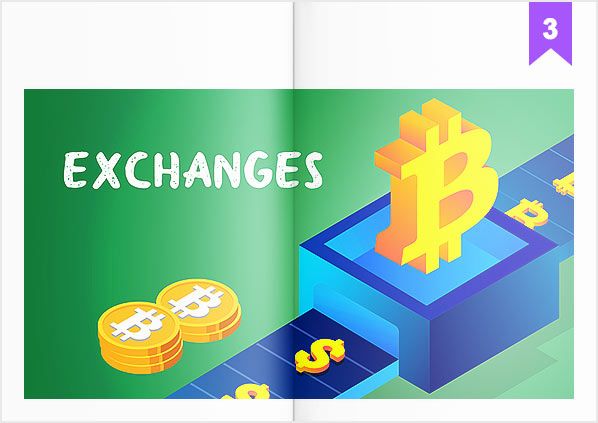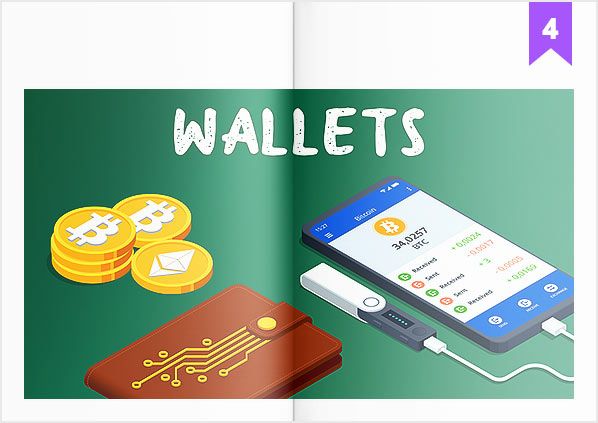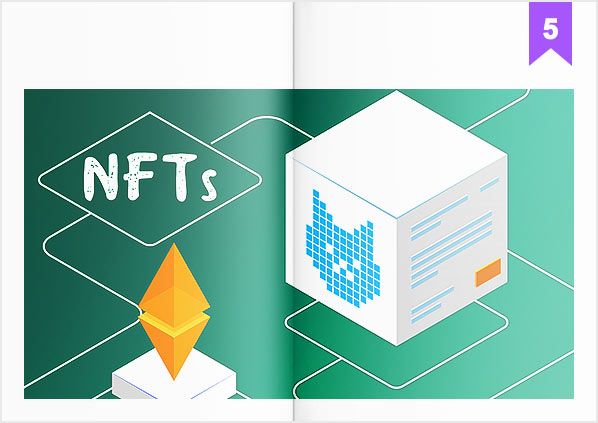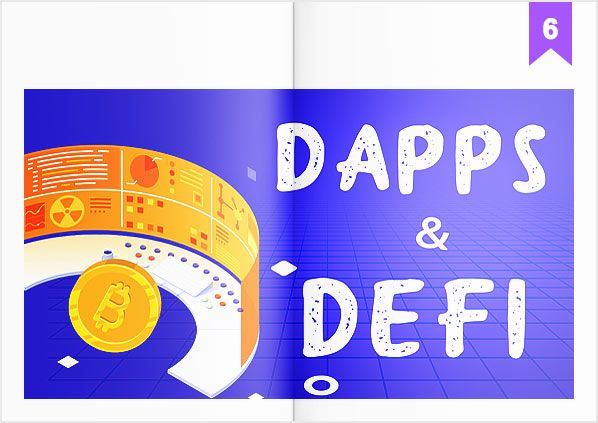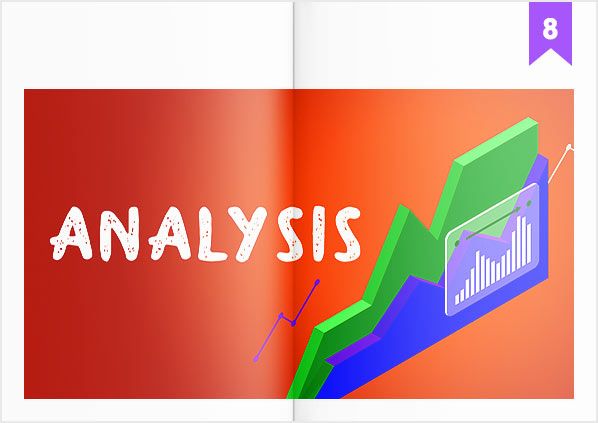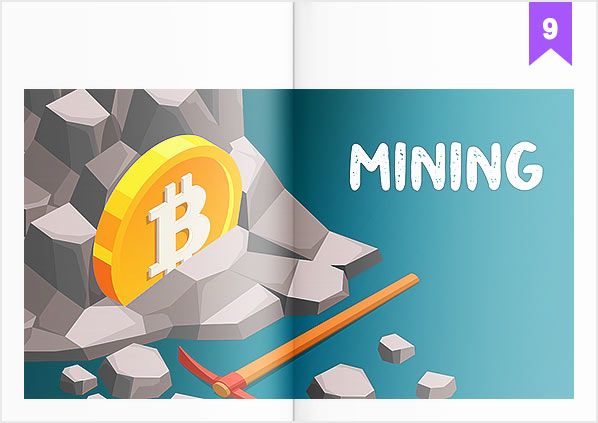bear markets</strong></strong></a> when the prices drop by at least 20%. Bear markets are statistically infrequent.</p>\n<p>According to the financial services company Charles Schwab, between November 1974 and February 2020, the S&P 500 stock market index oversaw 24 corrections, of which five were followed by bear markets.</p>\n<p>Compared to the traditional markets, the <a href=https://www.bitdegree.org/"/crypto/learn/crypto-terms/what-is-cryptocurrency/">cryptocurrency market experiences more frequent price corrections by 5-10%. This is caused by the overall <a href=https://www.bitdegree.org/"/crypto/learn/crypto-terms/what-is-volatility/">volatile nature of cryptocurrencies. However, crypto market recoveries tend to quickly follow. Since the creation of the cryptocurrency market in 2009, the overall market sentiment has been predominantly <a href=https://www.bitdegree.org/"/crypto/learn/crypto-terms/what-is-bull-market/">bullish./nAlthough <a href=https://www.bitdegree.org/"https://www.bitdegree.org/crypto/buy-bitcoin-btc/">Bitcoin (BTC)</strong></a> has overseen intense market corrections, with the value dropping by as much as 50% in a day, its overall value has grown significantly, from $0.003 per Bitcoin in 2010 to $69,000 at its all-time peak in November 2021.</p>","level":"easy","meta_title":"What is Correction? Definition & Meaning | Crypto Wiki","meta_description":"Correction meaning: Correction - an event in the financial market when an asset’s value suddenly decreases by at least 10% to adjust for over-valuation","meta_keywords":null,"language":"en","created_at":"2022-02-24T13:49:02.000000Z","updated_at":"2022-05-13T14:32:23.000000Z","preview_url":"https://www.bitdegree.org/crypto/learn/crypto-terms/what-is-correction"},"prevSection":{"id":194,"original_id":null,"author_id":41,"translator_id":null,"title":"What is Contract?","slug":"what-is-contract","section":"C","keyword":"Contract","status":"published","definition":"in traditional finance, a binding agreement between two or more parties. In crypto, smart contracts are self-executing computer programs.","content":"<p><strong>Contracts</strong>, in traditional finance, are binding agreements between two or more parties. Historically, some contracts were agreed upon verbally. However, nowadays, it is more common to sign contracts in a written or electronic format.</p>\n<p>Contracts are used to officially confirm that party A has agreed to financial dealings with party B, and, in some instances, party C or more co-signers. In the traditional sense, contracts are treated as binding agreements.</p>\n<p>If a customer wishes to purchase property, they may have to sign a contract with the entity selling it. The contract would detail the transfer of ownership, property price, the date of signing, and other important details.</p>\n<p>Another common model is job contracts. When starting a job or an internship, the employee and the employer sign a contract that details the job responsibilities, the start of employment, the employee’s wage, and other conditions.</p>\n<p>Contracts play a vital role in the global economy, as they are required to manage financial processes on a daily basis. Online procedures like purchases, e-banking operations, or money transfers can also be recognized as financial contracts.</p>\n<p>In the <a href=https://www.bitdegree.org/"/crypto/learn/crypto-terms/what-is-cryptocurrency/">cryptocurrency industry, contracts have a different meaning, tied to the <a href=https://www.bitdegree.org/"/crypto/learn/crypto-terms/what-is-decentralization/">decentralized digital nature of <a href=https://www.bitdegree.org/"/crypto/learn/crypto-terms/what-is-blockchain/">blockchains. The existence of contracts is seen as one of the most fundamental components of blockchain technology, allowing users to take part in and further develop <a href=https://www.bitdegree.org/"/crypto/learn/crypto-terms/what-is-defi/">decentralized finance (DeFi)</strong></strong></a>.</p>\n<p><a href=https://www.bitdegree.org/"/crypto/learn/crypto-terms/what-is-smart-contract/">Smart contracts</strong></a> are the core element of blockchain technology. They are self-executing computer programs. Smart contracts ensure that transactions and operations completed on the blockchain remain anonymous.</p>\n<p>The details of the agreement between the buyer and the seller are recorded by the smart contract and embedded in the blockchain code. The agreement within the program is distributed to the <a href=https://www.bitdegree.org/"/crypto/learn/crypto-terms/what-is-node/">nodes on the blockchain network.</p>\n<p><a href=https://www.bitdegree.org/"/crypto/learn/crypto-terms/what-is-mining-contract/">Mining contracts</strong></a> are utilized by blockchain users who wish to mine cryptocurrency but do not have the software or hardware required to take part in the process. In that case, they can employ the services of <a href=https://www.bitdegree.org/"/crypto/learn/crypto-terms/what-is-cloud-mining/">cloud mining</strong></a>, which allows them to mine without owning physical storage themselves.</p>","level":"medium","meta_title":"What is Contract? Definition & Meaning | Crypto Wiki","meta_description":"Contract meaning: Contract - in traditional finance, a binding agreement between two or more parties. In crypto, smart contracts are self-executing computer programs.","meta_keywords":null,"language":"en","created_at":"2022-02-24T13:24:47.000000Z","updated_at":"2022-05-13T14:32:23.000000Z","preview_url":"https://www.bitdegree.org/crypto/learn/crypto-terms/what-is-contract"},"currentChapter":"C","currentSection":"what-is-coordinator","chapterTitle":"C","readingLevel":"medium"},"url":"/crypto/learn/crypto-terms/what-is-coordinator","version":"cdd198d50cbe5c9c21c9329d7c096ffc"}" class="container-fluid d-flex crypto-book p-0"> Crypto Terms: Letter C
What is Coordinator?
Coordinator MEANING:
Coordinator -
a specialized client on a blockchain network that lets the network nodes verify the validity of their ledger copy compared to the original transaction data.
Let's find out Coordinator meaning, definition in crypto,
what is Coordinator,
and all other detailed facts.
A coordinator is a client responsible for tracking validator nodes on the blockchain system to ensure the data is accurate. Blockchains function as distributed ledgers that contain transaction data that need to be verified by a decentralized network that consists of validator nodes. The functionality of different blockchains varies across the board.
The information across all network nodes has to match. Therefore, a coordinator is responsible for issuing milestones – transactions that are recorded on the blockchain and utilized by validator modes to confirm the validity of their copy of the ledger. Coordinator clients are not utilized in all blockchain systems.
The IOTA blockchain is well-known for utilizing a coordinator client for ledger verification. The coordinator was a crucial part of the IOTA network, as it provided additional security to the blockchain and ensured an even distribution of valid ledger copies.
The IOTA foundation has since revamped its blockchain system by implementing the next steps on the network’s roadmap and removing the coordinator client component.
Coordinator clients are not perceived positively by many blockchain users. Some critics state that the coordinators negatively impact the decentralized nature of blockchain technology.
Coordinators hold a concentrated power that could be perceived as centralized since they directly affect all the ledger copies within the network. Thus, blockchains with a coordinator client cannot be seen as fully decentralized.
Since the core idea of blockchain is a decentralized network without a single overseeing authority, the centralized behavior of a coordinator client interferes with what the technology itself promotes. While IOTA employed a coordinator client at its inception, the foundation’s goal was to eventually shift operations to a secure decentralized model.
New consensus mechanisms have emerged with further blockchain developments. Such mechanisms are notable for providing better decentralization. After removing the coordinator client, IOTA now employs the Directed Acyclic Graph (DAG) to verify transactions and allow nodes to validate them.
Such developments may see the slow removal of coordinator clients on other blockchain systems. However, some networks can still rely on coordinators as an additional network security measure.


